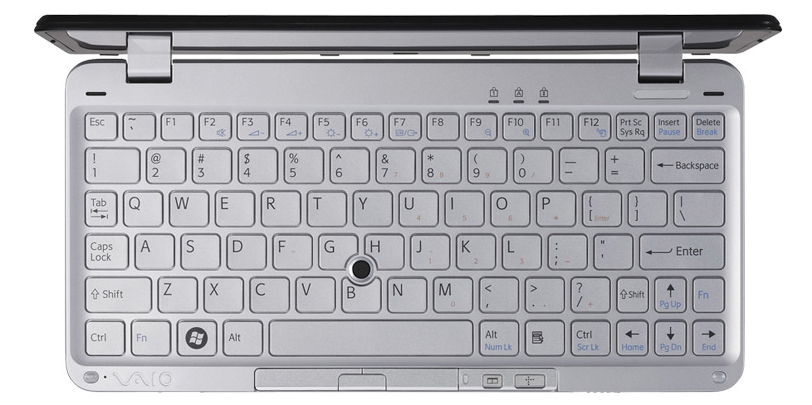Where's the competition to Sony's P-Series?

Way back in January, Sony debuted its P-Series Lifestyle PC, an 8-inch laptop computer that shoehorned netbook-level innards into a men's suit wallet (or women's wallet) -sized form factor.
It wasn't a netbook, it wasn't a laptop, it wasn't a tablet or anything in between. Upon its introduction, there was nothing like it.
Fast-forward to now: this is the eighth month that the P-Series has been on the market. It's already gone through one update and price drop.
Where's the competition?
When it appeared, reviewers were keen on the P-Series' form factor but less so on its sluggish hardware and its almost $2,000 price tag (which still remains at the higher end). As time passes, hardware advances and prices drop -- but the form factor remains a serious contender because it can be used in situations other computer products cannot.
If I'm a student in a classroom (or library, or...), I might rather tote the 1.4-lb. P-Series to quickly type notes without carrying the bulk of a full-size PC. If I'm a reporter on assignment, I'd rather have a P-Series in the field than a thin-and-light laptop or even a netbook.
You can tuck a P-Series into a jacket pocket or purse and leave it there for the rest of the day. Any other computer requires a bigger bag, a stronger shoulder and a bit more planning.
So why hasn't Dell, HP, Acer or others emerged with a challenger?
Meanwhile, the rumor mill is on fire with news that Apple will offer a tablet Mac computer that presumably will be a large iPod touch. That's a great idea for Apple's product line, but it doesn't at all address the space the P-Series occupies. Apple's tablet is rumored to be touch-only, while the P-Series offers a full QWERTY keyboard, sans touchpad. Entertainment is much better on a tablet; taking notes, definitely not.
Complicating things is Microsoft CEO Steve Ballmer's recent claim that "ultra-thin PCs" will triumph over Netbooks. That declaration requires further advancement in sizing PCs down and keeping them cool. No doubt, these ultrathin PCs will be more expensive than the Netbook as we now know it. A full-size ultrathin PC is highly portable -- but in a different way than Sony's P-Series.
A few overseas knockoffs of the P Series have emerged, as well as some big-name concepts, but nothing has emerged for mass consumption.
And that's a problem, because it allows Sony to corner the market for this form factor and get away with ridiculous price points for a computer that functions much better as a secondary machine than a typical Netbook.
I'd buy a P-Series, but I don't have $999 or more to blow on a computer whose primary function would be a high-tech, Web-ready digital notebook.
If competition existed, would you bite on this form factor? Leave your thoughts in TalkBack.
